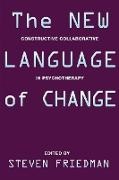Read more
About the author
Marianne Walters, MSW, is Founder and current Director of The Family Therapy Practice Center in Washington, DC, and Chair of the Women's Project, Ms. Walters participates in family therapy training in a wide range of settings in the United States and internationally. During her tenure as Executive Director of the Training Center at the Philadelphia Child Guidance Clinic and since, she has held faculty positions at a number of schools of social work and psychiatry. On the Editorial Board of the Journal of Family Therapy, she has contributed chapters to edited books on family therapy.
Betty Carter, MSW, the first woman in the field to head a major training institute, is co-founder and Director of the Family Institute of Westchester. The author of numerous articles and book chapters, she is a teacher and clinical supervisor, and also conducts a large clinical practice in Mount Vernon, New York.
Peggy Papp, MSW, is a senior training supervisor and director of the Depression Project at the Ackerman Institute for the Family in New York City. A former board member of Family Process, she was a cofounder of the Women's Project in Family Therapy. She was an associate director of the Center for Family Learning and has served on the faculty of the Philadelphia Child Guidance Clinic and the Family Studies Center of the Albert Einstein College of Medicine. Ms. Papp's innovative contributions to the field of family therapy have been recognized with awards from the American Family Therapy Academy and the American Association for Marital and Family Therapy.
Olga Silverstein, MSW, is a senior supervisor and faculty member at the Ackerman Institute for the Family. She has lectured and taught internationally and maintains an extensive private practice in New York City.
Summary
Bringing new focus to the subject, THE INVISIBLE WEB investigates the family from a feminist perspective. Using the lens of gender, connections between mothers and daughters, fathers and daughters, mothers and sons, and husbands and wives are analyzed and given new meaning. The authors evaluate and redefine family transitions such as divorce, single-parent and female-headed households, and remarried couples who are attempting to integrate their respective children with ex-spouses and complicated networks of extended kin. They also reexamine traditional and emerging roles for women in their early, middle, and later years. Written in an engaging format, each chapter features an in depth analysis of how gender shapes the relationship in question. This discussion is followed by fascinating vignettes of actual cases from each of the four authors, whose approaches reflect different orientations to therapy.
Based on the work of the Women's Project in Family Therapy which won the 1986 AFTA Award for Distinguished Contribution to Family Therapy, this groundbreaking work is an excellent text for courses in family therapy and women's studies, an invaluable guide for mental health practitioners, and an insightful read for anyone who wishes to explore the invisible web of gender patterns in families.

